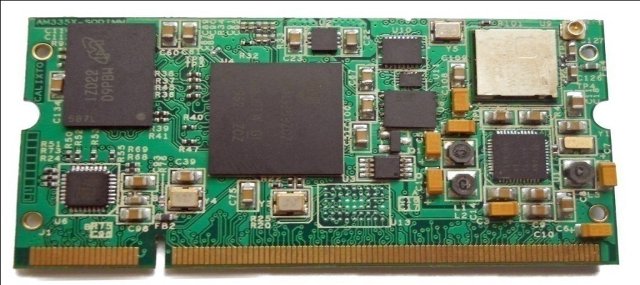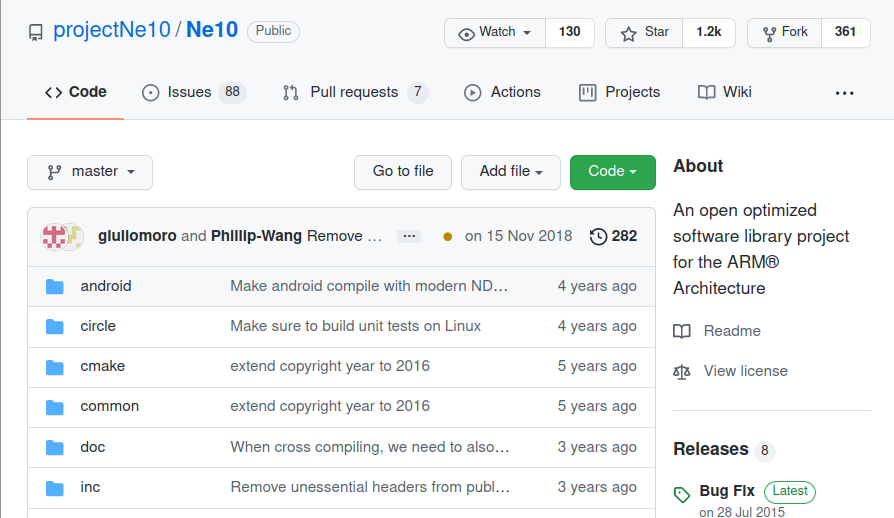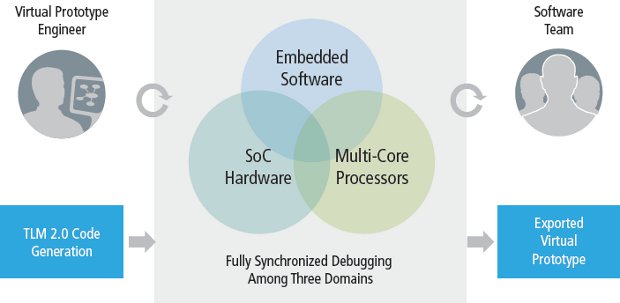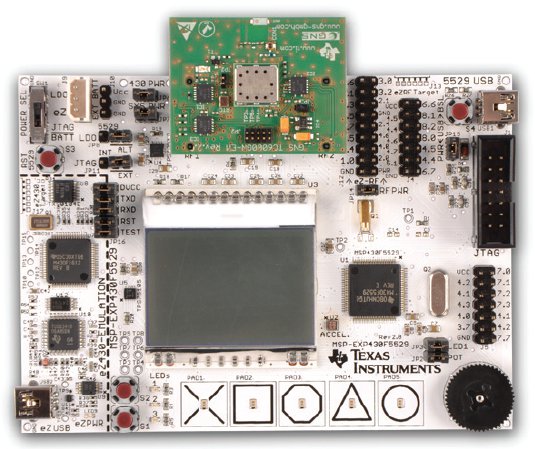Calixto Systems is a technology company based in Bangalore, India, providing System-on-Modules (SoM), evaluation boards (EVM) and consultancy services for Android, Linux and WinCE. The company has announced an update to its VERSA families of system-on-modules by including support for Texas Instruments Sitara AM335x processors. The previous version is based on TI OMAP-L138 C6-Integra DSP+ARM Processor. The AM335x SoM will provide higher performance than the previous module and targets industrial automation, smart grid, remote terminals, healthcare, handheld point-of-service (POS) terminals and weighing scales. Here are M335x VERSA SOM specifications: Texas Instruments AM335x (Cortex A8) processor @ 720 MHz with 3D Graphics Support (PowerVR) 256/512 MB of DDR3 SPI Flash Wireless LAN (b/g/n) (Optional) Bluetooth 4.0 (Optional) Two 10/100 Ethernet (One PHY on SOM) 24 bit LCD with Touch Screen interface 2x USB 2.0 OTG, 2x CAN, 4x UARTs McASP, PRU , SPI, I2C etc. 200 pin SODIMM connector Dimension: 34mm x […]
ARM Development Studio 5 (DS 5) Demos At Design West
ARM has shot a few video demos of their ARM Development Studio 5 (DS 5), a software development tool suite for ARM platforms, at Design West 2012. The first video shows DS 5 running on the Xilinx Zynq-7000 platform (dual cortex A9 + FPGA), and we can see the memory map, registers, call graphs and stack usage. We can also see real-time processor switching and the function that takes the most CPU resources (profiling). The second videos showcases ARM DS-5 Streamline, a performance analyzer, which helps determine how well programs are running on a Linux or Android platform, on an Samsung Exynos 4210 platform (Origen board?). This tool also to profile both the dual-core ARM Cortex-A9 and ARM Mali-400 MP GPU in the platform. We are shown three types of reports: CPU/GPU Loading Threads usage Power Usage per application The third and last video shows ARM DS 5 on Freescale i.MX6 […]
Express Logic Releases ThreadX-Lite RTOS for ARM Cortex-M
Express Logic has unveiled its ThreadX-Lite Real-Time Operating System, a priority-based, preemptive scheduling RTOS for ARM Cortex-M development. It is exclusively be available via IAR Systems and is integrated with the C/C++ compiler and debugger tool suite IAR Embedded Workbench. ThreadX-Lite is “designed to be small, fast, and easy-to-use, while maintaining the functionality and efficiency of a highly optimized RTOS”. ThreadX-Lite targets Cortex-M0, M0+, M3, and M4-based microcontrollers from Atmel, Freescale, Fujitsu, Infineon, NXP, STMicroelectronics, and Texas Instruments. ThreadX-Lite is a subset of ThreadX RTOS, both RTOS share features and capabilities packaged in an object library as well as ThreadX API, but it is not very clear what the differences between the two are from the resources available. Here are the key feature of this RTOS: Small-footprint (small as 2KB, automatic scaling) Fast execution (sub microsecond context switch) Unlimited threads, semaphores, timers, queues, block pools, byte pools, and event flag groups […]
Linaro 12.03 Release with Kernel 3.3-rc3
Linaro has just released version 12.03 based on Linux Kernel 3.3-rc3 and Android 4.0.3. Among the key points, hardware video decode in now supported in Origen (Android), Android runs in A15/A7 platforms, libav AAC optimization provides about 2x performance improvement and QEMU supports Samsung Exynos 4240 and Calxeda Highbank (work done upstream). Here are the highlights of the release: Android Linaro Android has support for DS-5 version 5.9. Hardware accelerated Multimedia is now integrated on Origen. EEMBC, denbench and coremark have been ported to Android and are running in LAVA. android.net ConnectivityManager unit tests have been built and integrated in all builds. Hardware decode of H264 and MPEG4, 1080P and 30 FPS is enabled on Origen. Origen now has 1080p HDMI Graphics and Video Support. Android runs on A15, A7 and A15/A7 fast models. ARM’s big.LITTLE has been tested running Android using a set of unit tests. Kernels of prebuilt […]
Xilinx Zynq-7000 Extensible Processing Platform (EPP): Dual Cortex A9 + FPGA SoC
The Xilinx Zynq-7000 EPP (Extensible Processing Platform) is a new class of device, offering a mix of a dual-core ARM Cortex-A9 subsystem (including cache, memory controllers, interface, and peripheral functions) with a 28-nm programmable digital FPGA and programmable analog capabilities. This combination opens the door to a range of demanding applications, including automotive (video processing and analytics requirements for driver assistance systems), broadcast (high-bit-rate bandwidth for high-accuracy video processing and analytics), and industrial control systems that combine high-processing demands with tight integration requirements. There are actually 4 models which share the same processing subsystem (CPU core, memory, peripherals, etc…) and only differ by the programmable logic used: Z-7010 – Artix-7 FPGA with 28K logic cells. Z-7020 – Artix-7 FPGA with 85K logic cells. Z-7030 – Kintex-7 FPGA with 125K logic cells. Z-7045 – Kintex-7 FPGA with 350K logic cells. The Zynq-7000 EPP platform allows concurrent software and hardware development: System […]
ARM Releases Ne10: An Open Source Library with NEON Optimized Functions
The Advanced SIMD extension (aka NEON or “MPE” Media Processing Engine) is a combined 64- and 128-bit single instruction multiple data (SIMD) instruction set that provides standardized acceleration for media and signal processing applications for ARM Cortex-A (ARMv7) processors and the goal of these instructions is similar to MMX, SSE, and 3DNow! extensions for x86 processors. Starting early 2011, ARM has been working internally on a project codenamed Snappy to develop common functions accelerated by NEON. They have now released the first version of Snappy, now called the Ne10 library, which is available on GitHub at https://github.com/projectNe10/Ne10 . The code has been developed in C and Assembler and tested on Ubuntu on ARM (Linaro). A Makefile is also included to build it for Android (AOSP). The current functions include vector and matrix operations accelerated by NEON instructions. Since the library is open source, ARM hopes developers will make use of the Ne10 […]
Virtual Hardware Platforms: Test & Debug Software Before the Silicon is Ready
Historically software could only be tested and debugged when the first silicon sample was ready, and the software team could not participate in the design process. But thanks to Virtual Hardware Platforms, software can be executed at speeds close to real time on an abstract model of the hardware, available long before a design has been completed. The virtual platform is designed to simplify the creation and support of virtual prototypes and allow design teams to begin developing software weeks to months before a hardware prototype is available, and software teams can use it as their application development platform. For example, Freescale is using a Virtual Hardware Platform for their new Vybrid Controllers to emulate both Cortex A5 and Cortex M4 cores, as well as peripherals and run OS such as Linux or MQX before the Controllers are ready (Q2 2012). One Virtual Hardware Platform has just won the ACE […]
TI SimpleLink GPS CC4000 Enables GPS For MCUs
Yesterday, Texas Instruments unveiled the SimpleLink GPS CC4000, a GPS self-contained module that can be interfaced with any MCU or MPU having a UART interface. Due to limited resources of microcontrollers, several GPS features have been implemented in hardware such as the push-to-fix function which can simply be controlled by the MCU via a GPIO to receive National Marena Electronics Association (NMEA) strings containing location, time and velocity information. TI Simplelink GPS CC4000 enables GPS-based applications such as asset tracking, industrial M2M, sports and fitness, and precision timing. It can deliver better than 2.5 meter accuracy and provides pulse-per-second output functions to provide precise location and timing data. It can also automatically reuse previously decoded satellite information thanks to its “watchful-eye” feature in order to deliver fast time to first fix (TTFF) and optimize power consumption. Here are SimpleLink GPS CC4000 key features: Driverless, fully integrated GPS solution which requires […]









